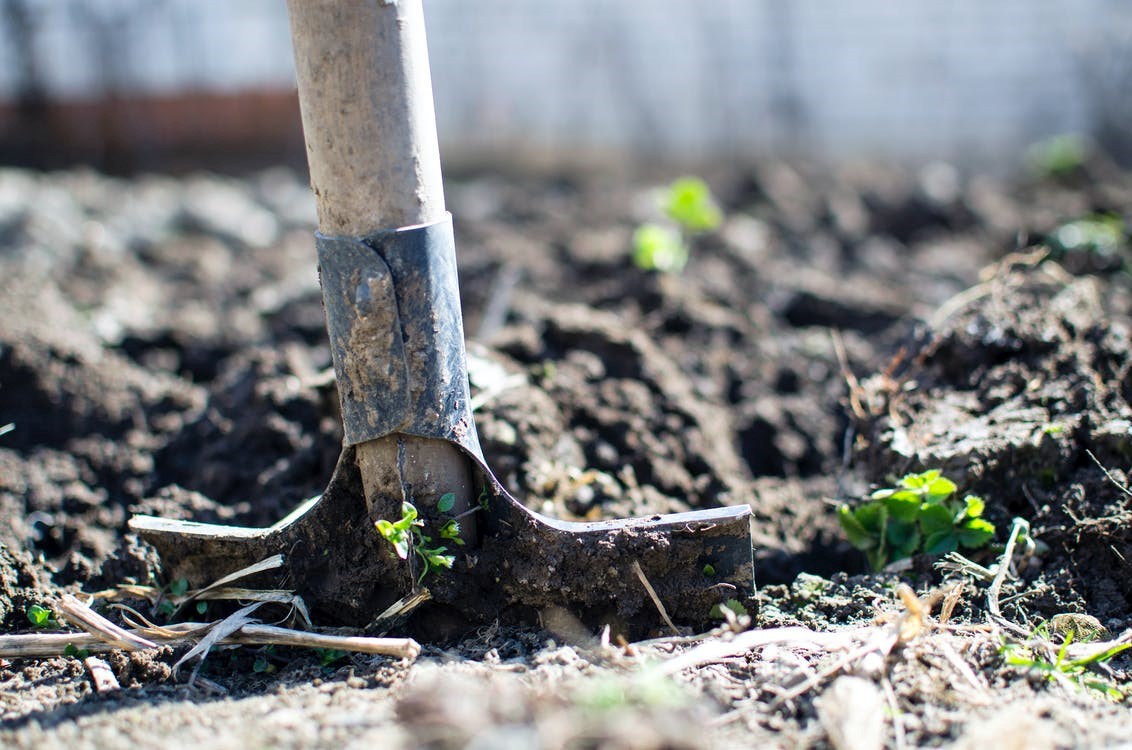Compacted soil is a common problem for urban areas in general, and not just in our gardens. The alarming fact is, unless you know what those early signs are, it’s possible to miss them entirely in the beginning, until the more severe signs of soil compacting start to become apparent.

Noticing the signs of soil compaction early on, however, presents us with the opportunity to cure mild soil compaction and prevent advanced stage deterioration. Stay with us as we explain the early and advanced signs of compacted soil, as well as what ignoring them can do to your garden.
What Causes Soil Compaction?
Soil compaction is attributed to all of the following causes:
- Construction and development
- Pressure from tractors, trucks, backhoes and other farming equipment that work on soil directly
- Heavy foot traffic can also compact soil with time
- A long season of hard and heavy rain, accompanied by storms
We can conclude that the level of soil compaction varies in accordance with the geographical location, the habitat, the weather, the level of development in the area and the kind of soil we are discussing.
What is the Harm in Having Compacted Garden Soil?
The primary issue with compacted soil is that it doesn’t allow enough water, micronutrients and oxygen to pass through it. If these essentials cannot reach the roots of plants growing in compacted soil, your garden will not be a healthy one. In extreme cases where the soil has become compacted enough to lose all of its natural porousness, seeds will not even germinate, while grown plants will wither away.
This is why it’s so important to catch the signs early on and act accordingly. You can effectively prevent compacted soil from losing all its porousness and becoming barren by taking timely steps before things go out of control. It is possible to remove the excess compactness almost completely from garden soil, via methods such as core aeration and topdressing.
What are the Signs that Indicate Mild or Severe Soil Compaction?
Certain signs are dependent on factors such as soil type and climatic conditions, but there are also common tell-tale signs of soil compaction which can be held as universally valid. Go through the list below and you will know whether your garden soil needs special attention for de-compacting or not.
- While watering your plants and seeds, you should notice that the water is pooling, instead of being readily absorbed within the soil
- If you are watering a high point in your garden, the water will simply run off unabsorbed, to pool at the lower regions
- Plants, including their fruits and flowers will look malnourished, while all of it will be smaller and frailer than the average for that species
- In extreme cases, the land will become completely barren, marked by bald patches without grass or even weed growth on them
- Even with the moisture of spring on your side, you will have a tough time trying to drive a shovel into compacted land
Act in time and you should be able to save your lawn or land from becoming barren. Do understand that there is a limit to what can be done to restore hardened, nonporous soil. Therefore, the earlier you notice the signs, the better will be your chances of succeeding with the restoration attempts.

